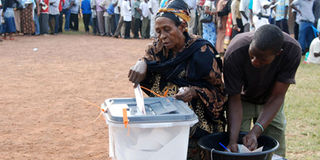Prime
Voter education is crucial as 2021 elections approach

Article 1 of the Constitution vests all power in the people of Uganda, who are required to exercise their sovereignty in accordance with the law. In order to do this, the people must be informed. Voter education and publicity create awareness and knowledge among voters. It also spells out the roles of the stakeholders in the electoral process. Voter education is an important aspect that promotes the credibility of an election as it empowers citizens with knowledge on how to exercise their right to vote in any election.
The 2016 elections for president and Members of Parliament, registered the highest voter turnout of 67.6 per cent. This was explained by strong voter mobilisation strategies laid down by both Electoral Commission (EC) and the 26 civil society organisations out of the accredited 72. In the end, 15,277,198 voters were on the voters roll. Out of the 15 million who registered, only 10,329,131 people voted. A total of 4,948,067 didn’t participate in the 2016 elections. The question is, why register if you won’t vote?
The study also found out that there were high numbers of invalid votes (477,319) registered in the 2016 general elections. Some of the challenges highlighted in the study was that the messages were not pre-tested both by the commission and civil society. For the EC to register low invalids, there is need to intensify voter education in the rural and hard to reach areas such as Karamojja, Amudat, Ntoroko ,Kalangala,Buvuuma Islands,Mayuge, etc.
Faridah Lule, [email protected]


